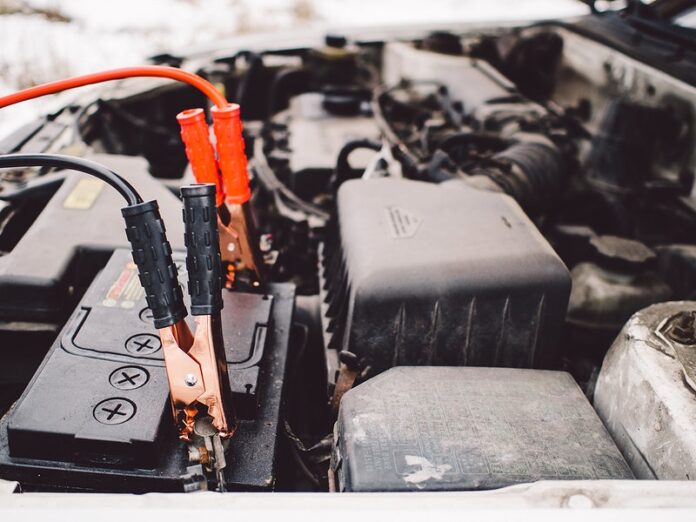Despite your best efforts, your car refuses to cooperate. But, ‘what the heck?’ you just replaced this battery; why isn’t your car starting?
It’s always fun to do this, especially if you’re in a hurry and have to go to work or drop your children off. But maybe your battery isn’t to blame. An automobile’s electrical system is complex, with numerous components.
We will discuss the Signs of a Bad Car Battery VS Alternator today. You will take different steps to fix the issue depending on which one you have. A faulty alternator can damage your battery, but we’ll talk about that later.
It sinks your stomach as you place the key in the ignition, only for the car not to start. If your car won’t start, it’s usually because the battery or alternator is malfunctioning. Placing blame on either of these two can be relatively straightforward.
Signs of a Bad Car Battery VS Alternator
In its simplest form, starting and running an engine involves three steps. As soon as the battery is charged, electricity is delivered to the starter. The starter then starts the machine, which then turns on the alternator. This cycle is completed by the alternator charging the battery.
Through elimination, bypass the battery and jump-start your car to locate the culprit. When you start your engine, but it dies immediately, your alternator is probably not charging your battery. When jump-starts and keeps your car running, but it won’t restart on its own, you probably have a dead battery.
Signs of a bad battery
The following symptoms may indicate a dead battery:
- Does the dashboard light dim? Check first the dashboard battery gauge. Even when the vehicle is off, the battery should be given a charge. Dim dashboard lights mean that the battery is not functioning correctly. Ensure your windshield wipers, lights, and automatic windows are working. Make sure these are all turned off, and try to start the car once again.
- Check the battery for corrosion. You can try wiping any corruption from the battery with a rag and jump-starting it if it still won’t start. Stop the car after it has run for a while. In this case, the alternator keeps the battery working while the motor is running, but the battery no longer retains its charge after the alternator has stopped.
- The battery may be old. Eventually, batteries lose their ability to maintain order due to corroding metal inside. A car battery lasts on average between two and five years. In time, the battery charge level diminishes to such a point that, no matter how much power the alternator gives it, the battery is no longer able to hold enough ability to start the car. Nevertheless, you can take steps to ensure your car battery lasts as long as possible.
Signs of a bad alternator
If you have tested the battery and it is working, now it is time to check the alternator. Find out how to tell if your alternator is wrong by looking for these symptoms:
Read more:Top 7 Signs About How To Know If A Car Battery Needs To Be Replaced?
- Dim interior lighting. Make a note of how bright the interior lights are when the car is running. If the dashboard dims gradually, the alternator may be at fault.
- Bright or dim headlights. You may have noticed your headlights becoming brighter as you accelerate and dimming as you slow down. The alternator is probably not charging the battery enough.
- Growling sounds. Did you hear any growling sounds before the problem started? Some alternators make a growling sound before they fail.
- Some emit a burning smell. Is there a smell of burning rubber or hot wires coming from your alternator when overheating? That’s a sign it needs to be replaced.
- Check the alternator. Some recommend running the engine with the negative battery cable disconnected to test the alternator. It is not advisable to do this since it may damage your vehicle’s electrical system and result in further problems. You can test your alternator by following these instructions.
- Repairing your battery or alternator can be costly. Here’s some advice on finding the right mechanic. You can get help if your car doesn’t start if you have roadside assistance.
With a lousy alternator, how long will a battery last?
A lousy alternator won’t charge the battery, and the battery may have to power the headlights and all the other accessories and systems in the vehicle. The battery will be quickly depleted. Batteries may run flat within minutes to a few hours, depending on how much charge they have and how old they are.
Compared to old cars, diesel engines have more straightforward engineering and fewer components to be powered by batteries. This means that these vehicles with bad alternators may have their battery supporting the car for longer.
Several systems draw power from the battery in gas-powered cars, and if the alternator breaks, the vehicle may run out of battery sooner.
Is it possible to drive a car with a bad alternator?
It is possible to drive your vehicle with a lousy alternator for a few minutes or in case of an emergency. Keep in mind that your car’s battery may not be receiving the usual amount of charge, and it may run out of power suddenly.
It is not advisable to do this. Your car will stop suddenly and without warning, leaving you stranded.
Can a lousy alternator damage a new battery?
The answer is yes. Instead of replacing the battery, have the alternator checked. The alternator of a new battery can be damaged quickly if the alternator is damaged.
Conclusion
People often think their car’s battery is its sole power source. However, most of your car’s electricity is produced by the alternator. Your battery is also charged while the engine is running. In most cases, a bad battery or a faulty alternator will prevent your car from starting. Any problem with these two components leads to a failed car startup.










